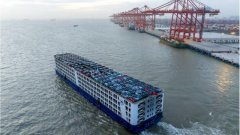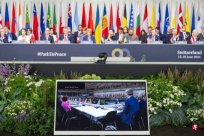The data released by the National Environment last week shows that according to the investigation in 2023, 72%of households participated in the garbage recovery plan, higher than 64%in 2021.However, more family participation has not been converted into a higher recovery rate. Singapore's residential garbage recovery rate last year stagnated at the historical low in 2022, and only 12%of garbage was recovered.
Pollution problem is the biggest challenge facing Singapore during the recycling process.The blue garbage recovery box placed across the island is often used as a general trash can, so that recycling items are contaminated with food waste and cannot be used.The pollution is not limited to a box of recyclables, because recycling items in the same area will collect the same recycling vehicle.The Environment Bureau estimates that the pollution rate of recycling items in home is about 40%.Therefore, it is very important to take the recycling box carefully and check it carefully. Throwing the garbage into the recycling box at will will destroy the entire recycling process and make the recycling of the careless people who work hard.
Increase the garbage recovery rate, we must first strengthen public education.Although the Environment Bureau has been advocating how to use the blue recycling box correctly, from the data point of view, the bureau obviously has to increase its efforts to continue education to ensure what everyone understands what can be recycled and which cannot be recycled.The elderly and family helpers have special attention and guidance.The school also plays an important role in teaching students' correct recycling methods.Through early education, the younger generation can better understand and practice correct recycling methods and convey these knowledge to their families.
The bureau should also consider improving the design of the blue recycling box so that it is easy to invest but not easy to remove, so as to prevent some people from turning the box to the cabinet, trying to find the recycling products such as paper skin, aluminum tanks, etc.As a result, the surroundings were messy and made people mistaken it into a trash.
Due to the limited types of items that can be invested in blue recycling boxes, such as old clothing and batteries, they must not be discarded. If more types of resources can be recovered and further classified, they may achieve better results.The kitchen waste recycling cabinet and intelligent recovery box tried in Bishan and Xinmin are a good attempt.This pilot plan launched in April 2022 uses intelligent systems to recover food garbage, old clothing, paper, plastic, aluminum, iron cans and glass.By using technology, it effectively reduces the pollution rate of recycling to 10%, far lower than 40%of the national average.Starting from January next year, the industry plans to place more intelligent recycling boxes at more than 83 locations.
Under this plan, the public needs to download the application and scan the QR code to select the category of recycling items to open the recycling box of the corresponding items.Although the operation is cumbersome, it can keep the environment clean and prevent abuse.On the other hand, by participating in the recovery plan accumulated scores to redeem supermarket gift vouchers, it is expected to change the public recycling behavior, and gradually develop the habit of classification of garbage.Of course, to completely change people's attitude towards recycling, it is necessary to continue to carry out public education and publicity.
Including non -residential garbage, Singapore's overall recovery rate last year decreased by five percentage points compared with the previous year, only 52 %.Far.Our only real horses and high garbage buried islands are expected to be filled in 2035.In addition to setting the goal of recovery rate, it is also important to reduce the overall consumption goal, because this can reduce the need for recovery from the source.
Garbage recycling is not convenient, and recyclable items must be cleaned and classified properly.To change the habit and lifestyle for a long time, it is challenging. Personal efforts may seem insignificant, but the power of collective action is huge.If everyone can actively participate in the correct recycling and reduce waste, Singapore can overcome the challenges of junk pollution and move towards a more sustainable future.



